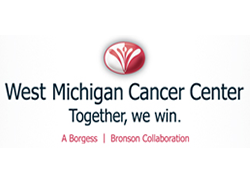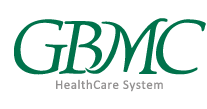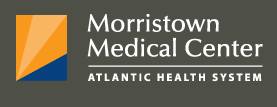Study of Vandetanib Combined With Chemotherapy to Treat Advanced Non-small Cell Lung Cancer
| Status: | Completed |
|---|---|
| Conditions: | Lung Cancer, Lung Cancer, Cancer, Cancer |
| Therapuetic Areas: | Oncology |
| Healthy: | No |
| Age Range: | 18 - Any |
| Updated: | 6/1/2018 |
| Start Date: | April 2008 |
| End Date: | April 2011 |
A Randomized Phase II Study Evaluating Vandetanib (ZD6474) in Combination With Docetaxel and Carboplatin Followed by Placebo or Maintenance Therapy With Vandetanib in Patients With IIIb, IV or Recurrent Non-Small Cell Lung Cancer (NSCLC)
It has been shown in previous studies that the ability to treat lung cancer could be
significantly improved by not only targeting the tumor cells directly with chemotherapy, but
also by cutting off the blood supply to the cancer cells. Blood vessels that supply the tumor
are formed through a process called angiogenesis. Vandetanib is an investigational drug that
acts by producing what is called an anti-angiogenic effect. An Anti-angiogenic effect is able
to inhibit the development of new blood vessels required by tumors to survive by blocking the
growth factors needed to form new blood vessels.
The purpose of this study is to determine if the addition of vandetanib to a standard
chemotherapy regimen will slow or stop the growth of the cancer for a longer period of time
compared to the time period generally gained from the use of standard chemotherapy alone
significantly improved by not only targeting the tumor cells directly with chemotherapy, but
also by cutting off the blood supply to the cancer cells. Blood vessels that supply the tumor
are formed through a process called angiogenesis. Vandetanib is an investigational drug that
acts by producing what is called an anti-angiogenic effect. An Anti-angiogenic effect is able
to inhibit the development of new blood vessels required by tumors to survive by blocking the
growth factors needed to form new blood vessels.
The purpose of this study is to determine if the addition of vandetanib to a standard
chemotherapy regimen will slow or stop the growth of the cancer for a longer period of time
compared to the time period generally gained from the use of standard chemotherapy alone
Lung cancer is the number one cause of cancer-related mortality in the United States, with an
estimated 160,390 deaths in 2007. Over 80% of these patients will have non-small cell lung
cancer (NSCLC), and the majority of these patients have advanced disease at the time of
diagnosis.
Patients with advanced disease who have an adequate performance status clearly benefit from
systemic chemotherapy, and many clinical trials have been carried out to determine the most
effective regimen. Comorbidities associated with NSCLC preclude the use of cisplatin in
doublet therapies, and, a meta-analysis comparing platinum-based doublet regimens to
non-platinum based, third generation regimens revealed that survival outcomes between these
regimens were equivalent. Despite poor response and overall survival benefits in this patient
population with accepted treatment doublets, the addition of a third cytotoxic agent did not
improve survival and demonstrated increased toxicity. Therefore, it appears a threshold
maximum response can be gained with cytotoxic chemotherapy alone. However, the poor outcomes
still associated with advanced NSCLC clearly demanded the need for continued improvements in
treatment. It was postulated that anticancer therapy could be significantly improved by not
only targeting the tumor cells directly, but also by targeting neo-angiogenesis. A randomized
phase II trial demonstrated a significant improvement in time to progression (TTP) in
patients receiving carboplatin, paclitaxel and bevacizumab compared to chemotherapy alone.
Due to life-threatening and fatal hemorrhage patients with squamous cell histology, as well
as those with a prior history of hemoptysis and brain metastases were excluded from all
further clinical trials using bevacizumab. The definitive study of bevacizumab in NSCLC was a
randomized phase III clinical trial conducted by ECOG (E4599) in which patients with advanced
non-squamous NSCLC received carboplatin + paclitaxel with or without bevacizumab which met
the clinical endpoint of improvement in survival and led to the approval of bevacizumab in
first line treatment in patients with advanced NSCLC with non-squamous histology.
The epidermal growth factor receptor (EGFR) protein activation leads to TK activation and
results in cell proliferation, motility, adhesion, invasion, survival, and angiogenesis. The
EGFR is over expressed in many solid tumors, including non-small cell lung cancer (NSCLC),
and multiple studies have suggested a shortened survival in NSCLC patients whose tumor over
expresses EGFR . Although studies using small-molecule TK inhibitors (TKIs) in NSCLC did not
meet efficacy endpoints, a phase III trial demonstrated the benefit of EGFR TKI monotherapy.
Patients with advanced NSCLC who have received 2 or 3 prior therapies were randomized to
erlotinib or placebo, and those receiving erlotinib demonstrated a survival benefit that led
to FDA approval of this drug in 2004.
The studies above clearly demonstrated a benefit to combining anti-angiogenic factors with
chemotherapy, and as a monotherapy using anti-EGFR agents, in patients with advanced NSCLC.
The potential benefit to simultaneously targeting these 2 pathways has been addressed in the
recurrent disease setting.
Vandetanib is a novel oral molecule (anilinoquinazoline) that has dual activity against both
the VEGFR and EGFR pathways. Specifically, this compound has potent and reversible inhibitory
activity against VEGFR-2 (KDR), VEGFR-3 (Flt-4), EGFR and RET . Vandetanib is a TKI and thus
acts through inhibition of ATP binding to the tyrosine kinase domains of these receptors.
Recombinant enzyme assays have demonstrated that vandetanib is highly selective for both
VEGFR-2 (IC50=40 nm) with only slightly lower affinity for VEGFR-3 (2.7 fold). EGFR tyrosine
kinase activity is inhibited with an IC50=500 nm. The results of a second-line setting phase
II trial were presented by Heymach et al at the ASCO meeting in 2006. In this trial, patients
were randomized to receive either docetaxel alone, or docetaxel with either 100mg or 300mg of
vandetanib. Patients with squamous cell histology, controlled brain metastases and prior
history of hemoptysis were allowed on study. The primary endpoint of prolongation of
progression-free survival (PFS) was met in the 100mg arm (Hazard Ratio(HR) 0.64, p=0.07).
There was no increased incidence of hemoptysis in patients receiving vandetanib, and no CNS
hemorrhage events were observed, and side effects commonly attributed to EGFR inhibition
(rash, diarrhea) were higher on the 300mg arm. Early combination studies suggest that in
patients with NSCLC, vandetanib is safe in combination with chemotherapy, may improve the
outcomes of chemotherapy when used at the 100 mg dose, and has activity as monotherapy at the
300mg dose. In addition, none of the observed hemorrhagic complications seen with bevacizumab
were observed, even in patients at high risk for this complication.
In this study, our main goal is to study the combination of docetaxel + carboplatin and
vandetanib, followed by a double-blind randomized assignment to maintenance therapy with
vandetanib 300 milligrams (mg) or placebo by mouth daily until disease progression to
determine if maintenance therapy can prolong progression-free survival. In addition to
clinical efficacy outcomes we will monitor for safety and tolerability, as well as explore
any differences in outcome based on age and gender.
estimated 160,390 deaths in 2007. Over 80% of these patients will have non-small cell lung
cancer (NSCLC), and the majority of these patients have advanced disease at the time of
diagnosis.
Patients with advanced disease who have an adequate performance status clearly benefit from
systemic chemotherapy, and many clinical trials have been carried out to determine the most
effective regimen. Comorbidities associated with NSCLC preclude the use of cisplatin in
doublet therapies, and, a meta-analysis comparing platinum-based doublet regimens to
non-platinum based, third generation regimens revealed that survival outcomes between these
regimens were equivalent. Despite poor response and overall survival benefits in this patient
population with accepted treatment doublets, the addition of a third cytotoxic agent did not
improve survival and demonstrated increased toxicity. Therefore, it appears a threshold
maximum response can be gained with cytotoxic chemotherapy alone. However, the poor outcomes
still associated with advanced NSCLC clearly demanded the need for continued improvements in
treatment. It was postulated that anticancer therapy could be significantly improved by not
only targeting the tumor cells directly, but also by targeting neo-angiogenesis. A randomized
phase II trial demonstrated a significant improvement in time to progression (TTP) in
patients receiving carboplatin, paclitaxel and bevacizumab compared to chemotherapy alone.
Due to life-threatening and fatal hemorrhage patients with squamous cell histology, as well
as those with a prior history of hemoptysis and brain metastases were excluded from all
further clinical trials using bevacizumab. The definitive study of bevacizumab in NSCLC was a
randomized phase III clinical trial conducted by ECOG (E4599) in which patients with advanced
non-squamous NSCLC received carboplatin + paclitaxel with or without bevacizumab which met
the clinical endpoint of improvement in survival and led to the approval of bevacizumab in
first line treatment in patients with advanced NSCLC with non-squamous histology.
The epidermal growth factor receptor (EGFR) protein activation leads to TK activation and
results in cell proliferation, motility, adhesion, invasion, survival, and angiogenesis. The
EGFR is over expressed in many solid tumors, including non-small cell lung cancer (NSCLC),
and multiple studies have suggested a shortened survival in NSCLC patients whose tumor over
expresses EGFR . Although studies using small-molecule TK inhibitors (TKIs) in NSCLC did not
meet efficacy endpoints, a phase III trial demonstrated the benefit of EGFR TKI monotherapy.
Patients with advanced NSCLC who have received 2 or 3 prior therapies were randomized to
erlotinib or placebo, and those receiving erlotinib demonstrated a survival benefit that led
to FDA approval of this drug in 2004.
The studies above clearly demonstrated a benefit to combining anti-angiogenic factors with
chemotherapy, and as a monotherapy using anti-EGFR agents, in patients with advanced NSCLC.
The potential benefit to simultaneously targeting these 2 pathways has been addressed in the
recurrent disease setting.
Vandetanib is a novel oral molecule (anilinoquinazoline) that has dual activity against both
the VEGFR and EGFR pathways. Specifically, this compound has potent and reversible inhibitory
activity against VEGFR-2 (KDR), VEGFR-3 (Flt-4), EGFR and RET . Vandetanib is a TKI and thus
acts through inhibition of ATP binding to the tyrosine kinase domains of these receptors.
Recombinant enzyme assays have demonstrated that vandetanib is highly selective for both
VEGFR-2 (IC50=40 nm) with only slightly lower affinity for VEGFR-3 (2.7 fold). EGFR tyrosine
kinase activity is inhibited with an IC50=500 nm. The results of a second-line setting phase
II trial were presented by Heymach et al at the ASCO meeting in 2006. In this trial, patients
were randomized to receive either docetaxel alone, or docetaxel with either 100mg or 300mg of
vandetanib. Patients with squamous cell histology, controlled brain metastases and prior
history of hemoptysis were allowed on study. The primary endpoint of prolongation of
progression-free survival (PFS) was met in the 100mg arm (Hazard Ratio(HR) 0.64, p=0.07).
There was no increased incidence of hemoptysis in patients receiving vandetanib, and no CNS
hemorrhage events were observed, and side effects commonly attributed to EGFR inhibition
(rash, diarrhea) were higher on the 300mg arm. Early combination studies suggest that in
patients with NSCLC, vandetanib is safe in combination with chemotherapy, may improve the
outcomes of chemotherapy when used at the 100 mg dose, and has activity as monotherapy at the
300mg dose. In addition, none of the observed hemorrhagic complications seen with bevacizumab
were observed, even in patients at high risk for this complication.
In this study, our main goal is to study the combination of docetaxel + carboplatin and
vandetanib, followed by a double-blind randomized assignment to maintenance therapy with
vandetanib 300 milligrams (mg) or placebo by mouth daily until disease progression to
determine if maintenance therapy can prolong progression-free survival. In addition to
clinical efficacy outcomes we will monitor for safety and tolerability, as well as explore
any differences in outcome based on age and gender.
Inclusion Criteria:
- Histologically or cytologically confirmed non-small cell lung cancer
- Advanced disease (stage IIIB disease [malignant pleural or pericardial effusion seen
on CT or Chest X-ray, any N, M0] or stage IV disease [Any T, any N, M1: distant
metastases]) that is primary or recurrent
- Measurable disease according to the RECIST criteria
- ECOG Performance Status 0 or 1
- Adequate organ function, as evidenced by ALL the following
- Absolute neutrophil count (ANC) ≥ 1500/mm³ and platelet count ≥ 100,000/mm³
- Hemoglobin ≥ 9 gm/dL
- Total bilirubin ≤ 1 X institutional ULN; if patient has Gilbert's disease, then
patient must have isolated hyperbilirubinemia (e.g. no other liver function test
abnormality), with maximum bilirubin ≤ 2 X institutional ULN.
- AST, ALT and alkaline phosphatase (Alk Phos) must be ≤ 1.5 ULN
- Creatinine ≤ 1.5 X institutional ULN or calculated creatinine clearance ≥ 60 ml/min
- Potassium between 4 mEq/L and institutional ULN (supplementation may be used),
- Calcium (ionized or adjusted for albumin)within institutional normal limits
- Magnesium within institutional normal limits (supplementation may be used)
- No prior cytotoxic chemotherapy or targeted therapy for advanced or metastatic disease
(Prior adjuvant therapy for lung cancer allowed if completed > 1 year prior to
registration)
- Able to take oral medication
Exclusion Criteria:
- Myocardial infarction, superior vena caval syndrome, NYHA classification of heart
disease ≥ 2 within the 3 months prior to entry
- History of an uncontrolled or recurrent ventricular, supraventricular or nodal
arrhythmia that requires treatment
- Hypertension not controlled by medication
- Peripheral or sensory neuropathy > grade 1
- Known hypersensitivity to carboplatin or docetaxel
- Active infection
We found this trial at
30
sites
Mount Nittany Medical Center Mount Nittany Medical Center is a 260-bed acute care facility offering...
Click here to add this to my saved trials
Click here to add this to my saved trials
Montefiore Medical Center As the academic medical center and University Hospital for Albert Einstein College...
Click here to add this to my saved trials
West Michigan Cancer Center In 1994, Borgess Health Alliance and Bronson Healthcare Group opened the...
Click here to add this to my saved trials
Click here to add this to my saved trials
Abington Memorial Hospital Abington Memorial Hospital (AMH) is a 665-bed, regional referral center and teaching...
Click here to add this to my saved trials
Click here to add this to my saved trials
Greater Baltimore Medical Center The 255-bed medical center (acute and sub-acute care) is located on...
Click here to add this to my saved trials
Click here to add this to my saved trials
Click here to add this to my saved trials
University of Texas Southwestern Medical Center UT Southwestern is an academic medical center, world-renowned for...
Click here to add this to my saved trials
Click here to add this to my saved trials
Click here to add this to my saved trials
Gundersen Lutheran Gundersen Health System is where caring meets excellence through a comprehensive health network...
Click here to add this to my saved trials
Lancaster General Hospital For more than a century, Lancaster General Hospital has been a leader...
Click here to add this to my saved trials
Click here to add this to my saved trials
Morristown Memorial Hospital Atlantic Health System – comprised of Morristown Medical Center, Overlook Medical Center,...
Click here to add this to my saved trials
Click here to add this to my saved trials
Click here to add this to my saved trials
Click here to add this to my saved trials
Click here to add this to my saved trials
Univ of Pennsylvania Penn has a long and proud tradition of intellectual rigor and pursuit...
Click here to add this to my saved trials
Click here to add this to my saved trials
Click here to add this to my saved trials
Click here to add this to my saved trials
Metro-Minnesota CCOP The Metro-Minnesota Community Clinical Oncology (MMCCOP) was established in 1979 through an NCI-funded...
Click here to add this to my saved trials
Click here to add this to my saved trials
Click here to add this to my saved trials
Cancer Center of Kansas The physicians of Cancer Center are hematologists and oncologists. The staff...
Click here to add this to my saved trials











